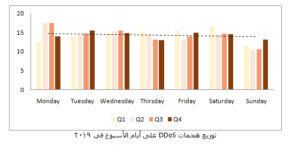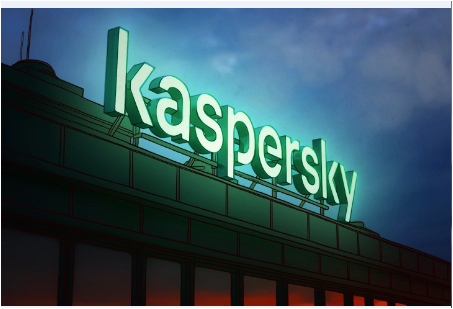
Although the number of DDoS attacks detected by Kaspersky DDoS Protection has grown significantly compared to the same period of2018,
the growth in comparison to Q3 2019 is only marginal (attacks in Q3 2019 equate to 92% of Q4 2019).
There was a more notable risein so-called smart DDoS attacks,
focusing on the application layer and carried out by skilled malefactors (as attacks in Q3 2019 were73% of those in Q4 2019).
Such an increase was quite predictable,
since November to December is traditionally a popular time for online business and retail activity.
However, Kaspersky expertsdid not identify a spike on Black Friday or Christmasholiday sales days.
“Despite the significant growth in general,
theseason turned out to be quieterthan expected. We suggest that we didn’t see a storm of attacks on certain days because companies expand their activity to engage with customers for the entirety of the holiday period. So,
there is no need for cybercriminals to launch an attack to coincide with a specific event. However,
attackers can still find a way to spoil your leisure time,as cybercrime is not an ordinary nine-to-five job,
so it is important to ensure that your DDoS prevention solution can automatically protect your web assets,
” comments Alexey Kiselev, Business Development Manager on the Kaspersky DDoS Protection team.
To help organizations protect themselves from DDoS attacks on weekends and duringpopular times of year,
Kaspersky recommends taking the following steps:
- Conduct stress tests and web application auditswith internal employees or with the help of outsourced specialists,
- to identify the weakest points in company infrastructure
- Assign specialists responsible for maintaining web resources operations.
- Ensure they know how to act in case of DDoS attacks and are ready to respond outside of their scheduled working hours
- Verify third-party agreements and contact information.
- This includes arrangements with an internet service provider,
- so that you can quickly reach it in case of an attack
- Implement professional solutions to protect the organization against attacks. For example,
- Kaspersky DDoS Protection combines Kaspersky’s extensive expertise in combating cyberthreats and the company’s unique in-house developments.
- The solution protects organizations against all types of DDoS attacks regardless ofwhen they happen
 التكنولوجيا وأخبارها بوابة مصر لأخبار تكنولوجيا المعلومات والإتصالات وفي أفريقيا كما تعتبر مصدر رئيسي للمعلومات حول تكنولوجيا المعلومات والاتصالات والفرص الاستثمارية المرتبطة بالاقتصاد الرقمي في المنطقة بالكامل
التكنولوجيا وأخبارها بوابة مصر لأخبار تكنولوجيا المعلومات والإتصالات وفي أفريقيا كما تعتبر مصدر رئيسي للمعلومات حول تكنولوجيا المعلومات والاتصالات والفرص الاستثمارية المرتبطة بالاقتصاد الرقمي في المنطقة بالكامل







